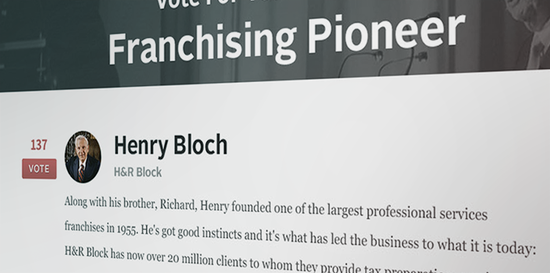Like the baker who decorates his pastry with confectioner's sugar, Dunkin' Brands CEO Nigel Travis and his executive team use numbers to sweeten the story of success they present to Wall Street. Since Dunkin' Brands (DBI) went public in 2011, the stock has performed well--perhaps even better than many expected. It's more than doubled since the July 2011 IPO.
But that's the Wall Street story. The franchisee story--attaining proper shop economics, shop expansion, profits, return on investment--is a longer, more complicated game.
I monitored the two-day Annual Investor Session last month in Canton where the focus was, understandably, on the Dunkin' investor story. And, while there are some clear differences between the way the franchisor, its franchisees and the investment community view the world, overall Travis and his team did a fine job of presenting a sweet story which Wall Street believes, at least for now.
The Numbers Tell the Story, But Whose Numbers matter?
Investors like Dunkin' stock (symbol: DNKN) largely because of its expansion potential, low capital needs and predictable and growing franchisor cash flow. But that franchisor cash flow comes from franchisees investing, operating and expanding.
Perhaps that is why Travis revealed more about domestic, new store economics than any franchisor has done in recent memory. He indicated the annual sales average for new stores opened in 2012 was $936,000 with a $420,000 buildout investment and a 13-15% earnings before interest, taxes, depreciation and amortization (EBITDA) margin--resulting in a 25-30% cash on cash return.
It must be noted, however, that the EBITDA calculation above ignores franchisee capital expenditures (CAPEX), overhead and debt service requirements. Chief Financial Officer Paul Carbone noted the 25-30% cash on cash return in year one for the emerging and west markets but, that calculation ignores future year's CAPEX and maintenance CAPEX.
My opinion, based on studying several prior Dunkin' presentations and working with franchisees, is that franchisees generally need more than the 25% cash on cash return metric, and should say so the next time DBI asks their opinion.
Wall Street anticipated DBI raising the number of targeted US openings this year. Instead DBI retained its 2013 guidance at plus 330 to 360 domestic Dunkin' shop openings for this year--including the opening of the first Denver store in Q4 2013.
Going forward, however, Travis indicated the company will increase the US DD new store opens outlook for 2014, implying it would be 6% versus the previous guidance of up to 5%.
Dunkin' continues to promote the themes that the company is asset light and sees lots of white space available for US expansion. Travis makes the point that new stores opening within the expansion zone continue to improve their all-important first-year numbers.
Getting Products to Market
Now that Dunkin's western distribution center is up and running, DBI has a better story to tell with regard to its supply chain. At the investor session, Chief Supply Officer Scott Murphy noted the average national pricing cost of goods sold for a typical Dunkin' located in the southwest section of the US unit--most likely the Phoenix market, generated savings of 300 basis points or 3 percentage points.
Murphy says that is right on target. And, while he did not specify savings in other regions, it is anticipated that improvements to the supply chain as a result of the new National DCP Agreement will yield savings from the elimination of fuel surcharges, reduction in distribution markup and new sourcing.
One point of interest to franchisees in established markets involves the use of frozen products--JBOD--and fresh-baked products.
According to Murphy, DBI's product distribution goal is a combination of products baked in central kitchens (CML) for morning and early afternoon hours and JBOD products in the evening.
He also suggested that older CMLs, those at the end of their economic life cycle, would likely close and merge. When questioned about the development of CMLs in new markets, Murphy said, "Once 40 to 50 shops were gained, that capital would be injected and a CML built."
He did not address from where the capital funds would come or how a CML would service its debt and maintain its economics over time.
Franchisee and Franchisor Differences in Perspectives
The entire presentation theme typifies the difference in perspective between DBI and its franchise owners, what Travis calls a "pluralistic notion" defining the interests of franchisees versus the interests of the franchisor. He admitted there are--and should be--differences in philosophy, driven by profit differences.
Franchisor profitability and growth can conflict with franchisee profitability and growth. And, there is the way franchisor and franchisee view time. Dunkin' Brands--and Wall Street--emphasize short term metrics, which fundamentally differ from franchisees' long-term perspective. The franchise owner looks at the return on investment over the entire term of a contract that can span economic peaks and valleys.
Still, Travis and his team believe in recognizing these differences and being flexible enough to build bridges to success.
At one point the CEO was specifically asked about issues Dunkin' Donuts has with its franchisees.
He said, "It was tough to think about major disagreements. We redid the franchise agreement; we tackled the supply chain..."
It was the CFO, Paul Carbone, who noted the primary issue of contention was where to build new units and which franchisee(s) should be allowed to proceed first.
Chief Operating Officer, Paul Twohig addressed new store development and, the sensitive topic of cannibalization. He said DBI used market site intercepts and market surveys.
But, at the end, determining how many new units to build and how close those should be situated to existing locations came down to both art and science.
The Future
On Wall Street, every quarter tells a new story. For Dunkin' Brands, key factors that will foster brand visibility and sales growth in emerging markets include robust national cable television advertising and the presence of Dunkin' Donuts products in the grocery channel.
DBI, like many successful companies, sees the value in collecting data on its customers through its customer relationship management (CRM) program which helps drive new marketing initiatives, like the DD Perks program and the DD mobile phone app.
These initiatives can assist new and existing franchisees increase customer counts and unit level economics--which translate into profits for both the franchisee and the franchisor.
Wall Street has learned that Dunkin's asset light story really puts the pressure on franchisees to invest capital, time and effort into building new locations and expanding existing ones. So far, the investor community likes what it sees and hears.
As I write this, Dunkin' stock is peaking and Travis is proudly pointing out how the company culture has changed since 2008, becoming a more operations focused and franchisee-friendly culture.
Travis's philosophy and DNKN's performance are fundamental to the Wall Street story.
But, the Dunkin' franchisee story is more complicated. What remains to be seen is whether long-term returns on franchisee investments, and the collaborative spirit with Dunkin' Brands will hold up in the face of increased pressure to close the white space and keep the profits--and the coffee--flowing.
For more of John Gordon's articles, please read here.







